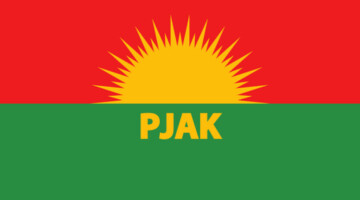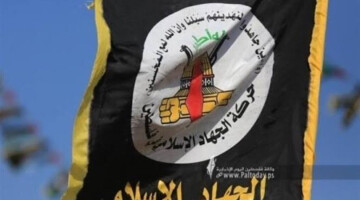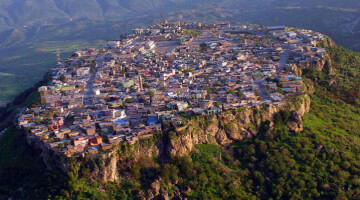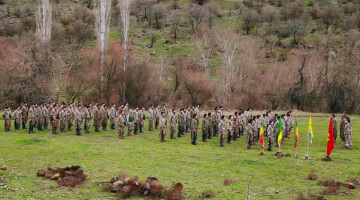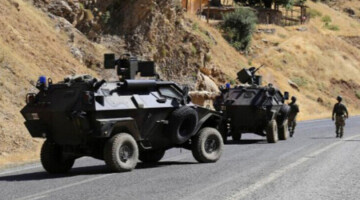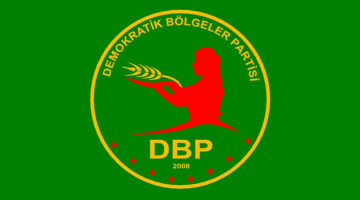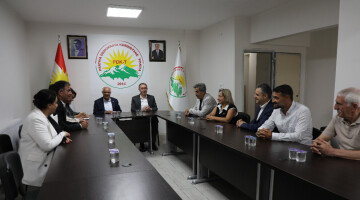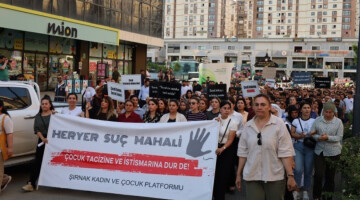The Press Center of the People's Defense Forces (HPG) has published information on the identities of the fallen guerrillas Serxwebûn Serhed and Rizgar Çavreş. The two HPG guerrillas died last Friday in the “Şehîd Helmet Dêreluk” operation against Turkish occupation forces in the Girê Amêdî resistance area in the Zap region of South Kurdistan. The HPG had already reported on their death on 14 January, but only gave their first names.
The HPG underlined that the operation, in which the Turkish army suffered heavy losses, “has determined the battle line for the current year. Guerrillas Serxwebûn and Rizgar would have overcome all difficulties and made the impossible possible, thus dealing a severe blow to the occupiers. Their practice has proven that a life according to apoist standards, military discipline, revolutionary seriousness, willingness to sacrifice and determination are the key to success.”
The HPG added: “The families of our comrades Serxwebûn and Rizgar and the Kurdish people can be infinitely proud of them. They fought with sacrifice and unreservedly and fell as heroes so that their people could live in a free country.”
The HPG provided the following information about the identity of the martyrs:
 Codename: Serxwebûn Serhed
Codename: Serxwebûn Serhed
First and last name: Sefa Altunay
Place of birth: Agiri
Names of mother and father: Mecbure – Mehmet Ali
Date and place of death: 12 January 2024 / Zap
 Codename: Rizgar Cavreş
Codename: Rizgar Cavreş
First and last name: Ronîcan Hemo
Place of birth: Kobanê
Names of mother and father: Hamide – Osman
Date and place of death: 12 January 2024 / Zap
Serxwebûn Serhed
Serxwebûn Serhed belonged to the Heyderan tribe and was a descendant of Kor Husên Pasha, who was assassinated during the Agirî uprising of 1930. His family was always close to the Kurdish liberation movement, and many of his relatives joined the armed resistance. Serxwebûn Serhed was born in the village of Kosa in Agirî and grew up with Kurdish culture. As a child, his grandmother told him about the Kurdish uprisings and the brutal massacre of the people in the Zîlan Valley.
After primary school, he had to leave the village to continue his school and experienced how, as a young Kurd, he was to be assimilated using perfidious methods in state boarding schools in Agirî, Bursa and Ankara. While studying in Bitlis, he became active in the Kurdish youth movement. In 2009, his cousin Jêhat Serhat died in the liberation struggle. Serxwebûn then began supporting the guerrillas as a militia member. In 2014 he joined the guerrillas in Serhed.
His training as a guerrilla took place under difficult conditions in North Kurdistan. After a successful practice on Mount Tendûrek, he went to Avaşîn in the Medya Defense Areas, where he focused on his ideological education and passed on his previous experiences to his fellow fighters. In 2018 he went to Heftanin and was wounded in an enemy attack. He was out for a while to get treatment, something difficult for him to endure.
Most recently, Serxwebûn fought against Turkish occupying forces in the western Zap region. During the operation on Girê Amêdî, he formed the vanguard together with Rizgar Çavreş and made a significant contribution to the successful completion of the operation.
Rizgar Cavres
Rizgar Çavreş was born in Kobanê and knew the Kurdish liberation movement since he was a child. The Rojava Revolution of 2012 led him to engage more intensively with the ideas of Abdullah Öcalan and the PKK ideology.
He felt responsible for defending the revolution and for a long time took part in the resistance against the attacks of the Turkish state and its mercenaries in Northern and Eastern Syria. Because these attacks never stopped, he came to believe that a free and self-determined life for the Kurdish people and other populations in the Middle East is only possible if the fascist Turkish regime is defeated. This required an uninterrupted revolutionary struggle, and the PKK guerrillas made this possible.
Rizgar went to the mountains to join the guerrillas. As a child he had dreamed of a life as a freedom fighter, and now he was making that dream come true. His journey into the mountains was a conscious step, and it wasn't difficult for him to get used to it.
The principle “If you want to live, then live in freedom” became a principle of life for which he enthusiastically advocated and made great efforts. At his own persistent request, he went to the war zone west of the Zap and took on various tasks, which he carried out purposefully and with great care. The aim was, among other things, to repel enemy attacks without losses. He fought courageously and willingly to sacrifice until the end and in close solidarity with his comrades.

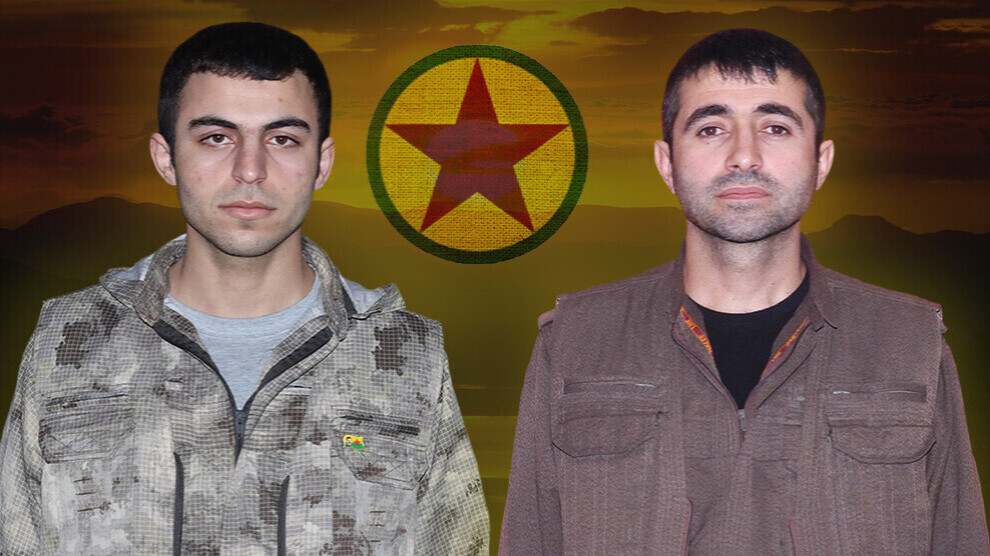
 Codename: Serxwebûn Serhed
Codename: Serxwebûn Serhed Codename: Rizgar Cavreş
Codename: Rizgar Cavreş